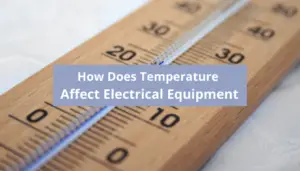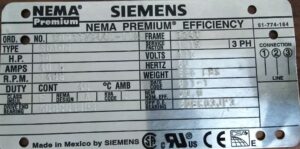To convert kw to hp, you can use the following conversion factor:
1 kilowatt (kW) is approximately equal to 1.34102 horsepower (hp).
So, to convert kilowatts to horsepower, you can multiply the number of kilowatts by 1.34102.
For example, to convert 100 kW to horsepower:
100 kW × 1.34102 ≈ 134.102 hp
This means 100 kilowatts is roughly equal to 134.102 horsepower.
Table of Contents
kw to hp converter online:
kw to hp conversion formula
Conversion from kW to hp:
-
How many kilowatts are in 1 horsepower? The conversion factor is 1 hp = 0.746 kW.
-
The formula for converting kW to hp: is HP = KW * 0.746
-
To use the kW to hp formula:
- Divide the KW value by 0.746.
Conversion from hp to kW:
- To convert from horsepower (hp) to kilowatts (kW), multiply the hp value by 0.746.
Examples of hp to kW conversion:
Example 1:
- How many kW is a 1 hp motor?
- Calculation: 1 hp = 1 * 0.746 = 0.746 kW.
Example 2:
- How many kW is a 20 hp motor?
- Calculation: 20 hp * 0.746 = 14.9 kW.
Example 3:
- How many kW is a 100 hp motor?
- Calculation: 100 hp * 0.746 = 74.6 kW.
Examples of kW to hp conversion:
Example 1:
- An electrical motor with 15 kW, what is its power in horsepower?
- Calculation: 15 kW / 0.746 = 20.1 hp.
Example 2:
- An electrical load with a power of 100 kW, how many hp is it?
- Calculation: 100 kW / 0.746 = 134.05 hp.
hp to kw 3 phase formula:
The formula for converting horsepower (hp) to kilowatts (kW) is the same for both single-phase and three-phase systems.
Why do we convert motor power to kilowatts?
We often convert motor power to kilowatts (kW) for several practical and standardization reasons:
-
Global Standardization:
Kilowatts are part of the International System of Units (SI), which is widely used across the world for scientific, industrial, and engineering purposes. This makes kW a universal standard for expressing power. -
Electrical Applications:
Motors are powered by electricity, and electrical systems are typically rated in kilowatts (or megawatts for larger systems). Using kW aligns motor power with the electrical input requirements. -
Ease of Calculations:
In electrical engineering, many formulas involve power in watts (e.g., P=VIP = VI), so it’s convenient to express motor power in kilowatts, a standard SI unit. -
Energy Efficiency and Billing:
Electricity consumption is measured in kilowatt-hours (kWh). Converting motor power to kilowatts makes it easier to calculate energy use and efficiency, which is important for energy management and cost estimation. -
Consistency Across Systems:
Converting motor power to kW ensures consistency with other equipment specifications, such as generators, transformers, and electrical networks, which are typically rated in kW or MW.
In short, converting motor power to kilowatts simplifies calculations, ensures compatibility with electrical systems, and aligns with global engineering standards.
Why does motor power in hp?
Motor power is often expressed in horsepower (hp) instead of kilowatts (kW) because of historical and practical reasons:
-
Historical Origin:
Horsepower was introduced by James Watt in the 18th century as a way to compare the power of steam engines to the work done by draft horses. It became a widely used standard before the metric system became prevalent. -
Practical Usage:
In countries like the United States and industries where imperial units are common, horsepower remains the standard for rating engines and motors, especially in automotive, agricultural, and industrial applications. -
Familiarity and Industry Norms:
Many manufacturers and users are more accustomed to horsepower because it’s been used for so long, making it easier for them to understand and compare motor sizes. -
Regional Differences:
While kilowatts are the standard in metric countries and scientific contexts, horsepower continues to dominate in places where imperial units are still widely used.
In summary, the use of hp versus kW is largely due to historical context and regional preferences. Both units represent power, and you can easily convert between them (1 kW ≈ 1.341 hp).
I have written a detailed article about motor nameplate understanding. I highly recommend reading it.

Don’t Leave Empty-Handed!
Install my Free Android App on Google Play:
Electrical Cables Most Common Tables “Cables Tables”
And, my Electrical Calculations App “Fast Electrical Calculator”
Discover more great content by subscribing to My channel
Looking to stay ahead of the game in the world of electrical engineering? Subscribe to my YouTube channel and gain access to exclusive content you won’t find anywhere else!
The staff I recommend
(Amazon Affiliate Links to products I believe are high quality):
- Economy 120 Volt/60Hz AC Power Source – Step-Down Voltage & Frequency Converters 1800W
- UNI-T Digital Multimeter Tester UT139C
- 50-Amp Extension Cord for RV “100ft”
- Voltage Stabilizer 110/220v
- Hair Dryer “best selling“
- TOSHIBA EM131A5C-BS Countertop Microwave Ovens
Disclaimer: This contains affiliate links to Amazon products. I may earn a commission for purchases made through these links.


